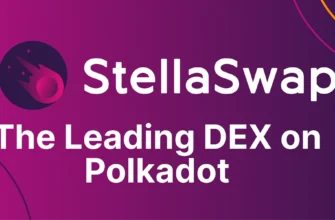Monero (XMR) is a privacy-oriented cryptocurrency designed to offer secure, untraceable, and anonymous transactions. Unlike Bitcoin and many other cryptocurrencies, Monero hides the sender, recipient, and transaction amount, making it a favorite among users who value privacy and confidentiality.
In this article, we’ll explore what Monero is, how it works, and its main pros and cons. Whether you’re new to crypto or looking to diversify your portfolio, understanding Monero is essential in today’s digital financial landscape.
- What Is Monero?
- How Does Monero Work?
- 🔒 Ring Signatures
- 🕵️ Stealth Addresses
- 📉 RingCT (Ring Confidential Transactions)
- Pros of Monero (XMR)
- ✅ 1. Unmatched Privacy
- ✅ 2. Fungibility
- ✅ 3. Decentralization
- ✅ 4. Active Community and Development
- ✅ 5. Real Use Cases
- Cons of Monero (XMR)
- ❌ 1. Regulatory Scrutiny
- ❌ 2. Limited Exchange Availability
- ❌ 3. Transaction Size and Speed
- ❌ 4. Perception Issues
- Is Monero a Good Investment?
- Final Thoughts
- Frequently Asked Questions (FAQs)
What Is Monero?
Launched in April 2014, Monero is an open-source, decentralized cryptocurrency that focuses on privacy, security, and untraceability. Its name comes from the Esperanto word for “coin.”
Monero uses advanced cryptographic technologies such as:
- Ring Signatures
- Stealth Addresses
- Ring Confidential Transactions (RingCT)
These features obscure the details of transactions, making it nearly impossible to trace where funds come from or where they go.
Monero’s ticker symbol is XMR, and it operates on its own blockchain. Unlike transparent blockchains like Bitcoin or Ethereum, Monero’s ledger does not publicly display transaction history, offering true financial anonymity.
How Does Monero Work?
Here are the key technologies that power Monero’s privacy features:
🔒 Ring Signatures
These combine a group of possible signers to make it unclear who actually signed a transaction.
🕵️ Stealth Addresses
Monero generates one-time addresses for each transaction, hiding the recipient’s actual address on the blockchain.
📉 RingCT (Ring Confidential Transactions)
This feature hides the amount being transferred in a transaction, adding another layer of privacy.
Together, these innovations ensure complete transaction confidentiality on the Monero network.
Pros of Monero (XMR)
✅ 1. Unmatched Privacy
Monero is widely regarded as the most private cryptocurrency available. It hides transaction details from everyone — even blockchain analysts.
✅ 2. Fungibility
Because transactions are untraceable, no Monero coin can be “blacklisted” or tainted based on its history — unlike Bitcoin. Each XMR is equally valuable.
✅ 3. Decentralization
Monero is highly decentralized. It discourages large mining operations through its RandomX algorithm, which favors CPU mining.
✅ 4. Active Community and Development
Monero is supported by a dedicated open-source community and receives regular protocol upgrades and security audits.
✅ 5. Real Use Cases
Monero is used in real-world scenarios such as private donations, personal purchases, and bypassing censorship in authoritarian countries.
Cons of Monero (XMR)
❌ 1. Regulatory Scrutiny
Because of its privacy features, Monero is often under scrutiny by governments and regulators. Some exchanges have delisted XMR to avoid compliance issues.
❌ 2. Limited Exchange Availability
Not all crypto exchanges list Monero, and trading pairs can be limited, making it less accessible to new users.
❌ 3. Transaction Size and Speed
Due to its privacy technology, Monero transactions are larger in size and slightly slower compared to coins like Bitcoin or Litecoin.
❌ 4. Perception Issues
Monero is sometimes associated with illicit activities because it is harder to trace — although privacy itself is not inherently criminal.
Is Monero a Good Investment?
Whether or not Monero is a good investment depends on your goals. If you value privacy, decentralization, and censorship resistance, Monero is a strong contender in the cryptocurrency space. However, the regulatory risks and limited adoption may impact its long-term value and use.
Final Thoughts
Monero (XMR) stands out in the crypto world as a pioneer of privacy. While it comes with unique benefits like anonymity and fungibility, it also faces challenges like regulation and limited exchange support.
Still, as concerns about financial surveillance grow, Monero remains one of the few cryptocurrencies that truly protects your financial freedom.
Frequently Asked Questions (FAQs)
Is Monero legal?
Yes, Monero is legal in most countries, though it faces tighter scrutiny due to its privacy features.
Can Monero be traced?
No, Monero transactions are designed to be untraceable using ring signatures and stealth addresses.
How to buy Monero?
You can buy Monero on exchanges like Kraken or KuCoin. Some platforms require KYC (identity verification).
Is Monero better than Bitcoin for privacy?
Yes, Monero offers built-in privacy features, while Bitcoin transactions are publicly visible on the blockchain.
Also read the article about the best Monero Mixer and Monero QR Code Generator.








